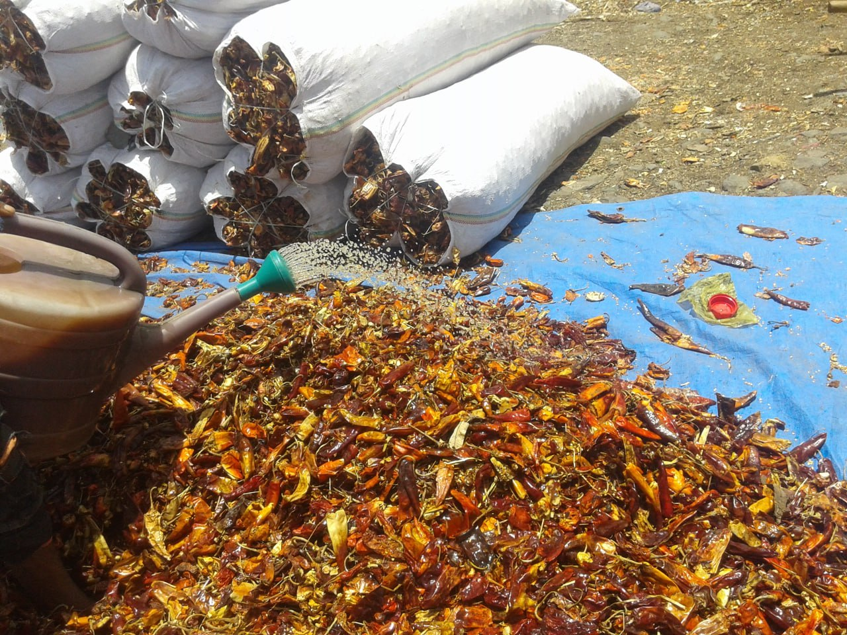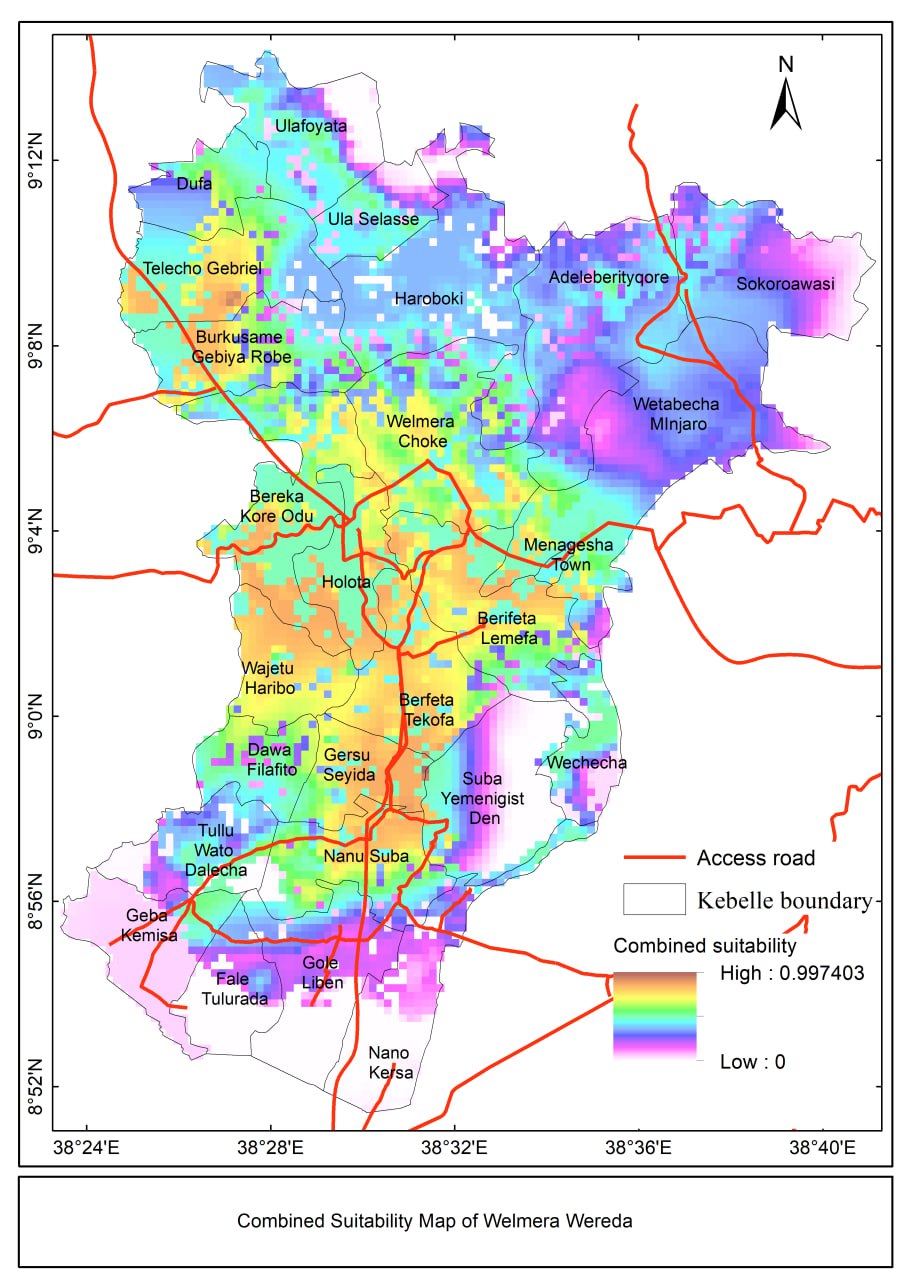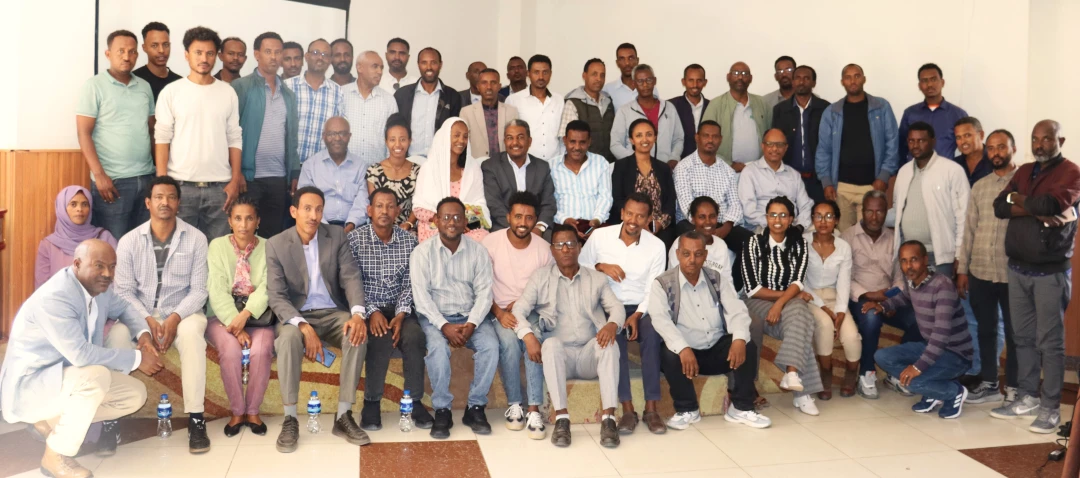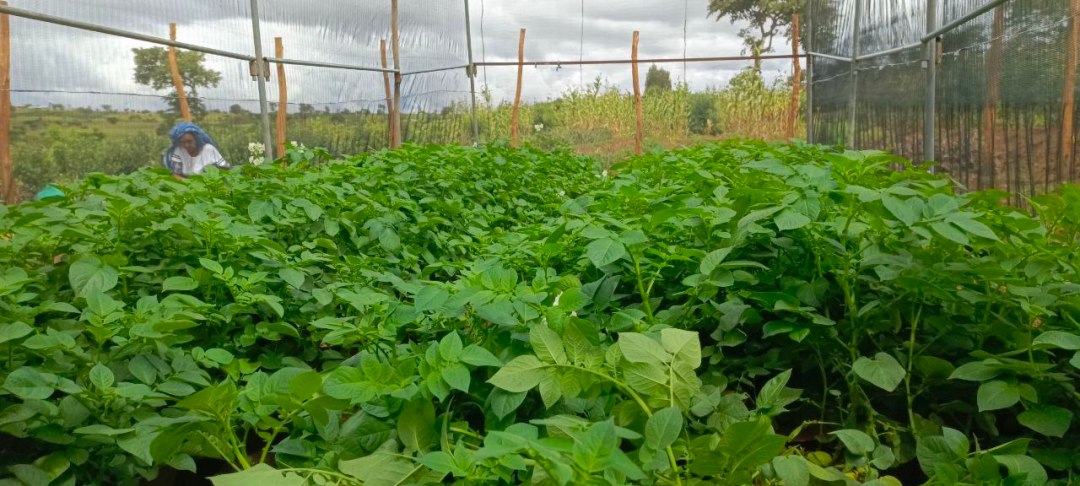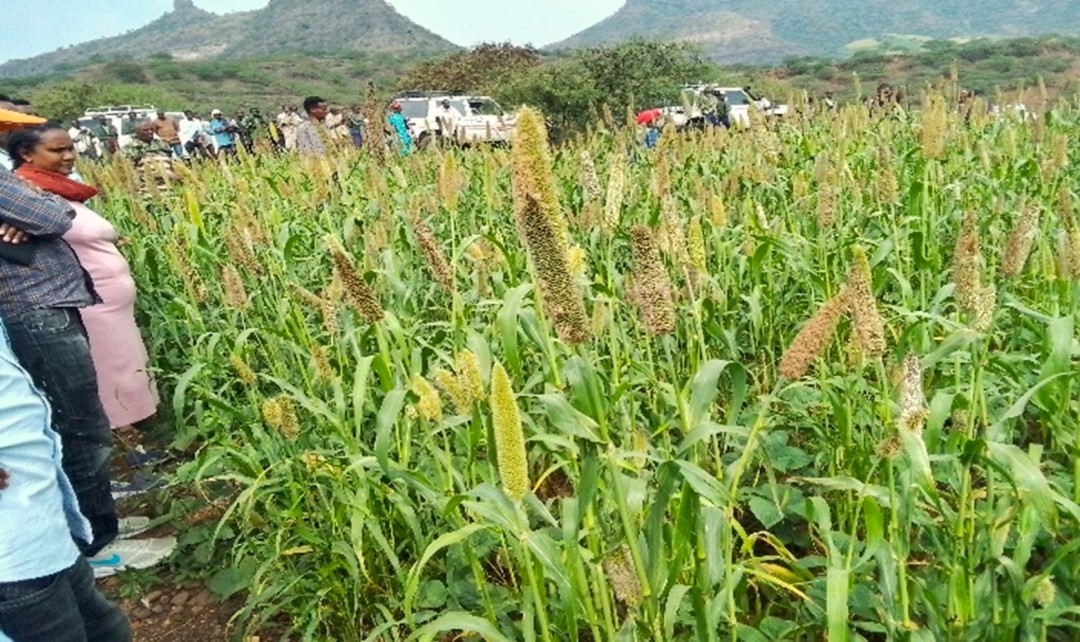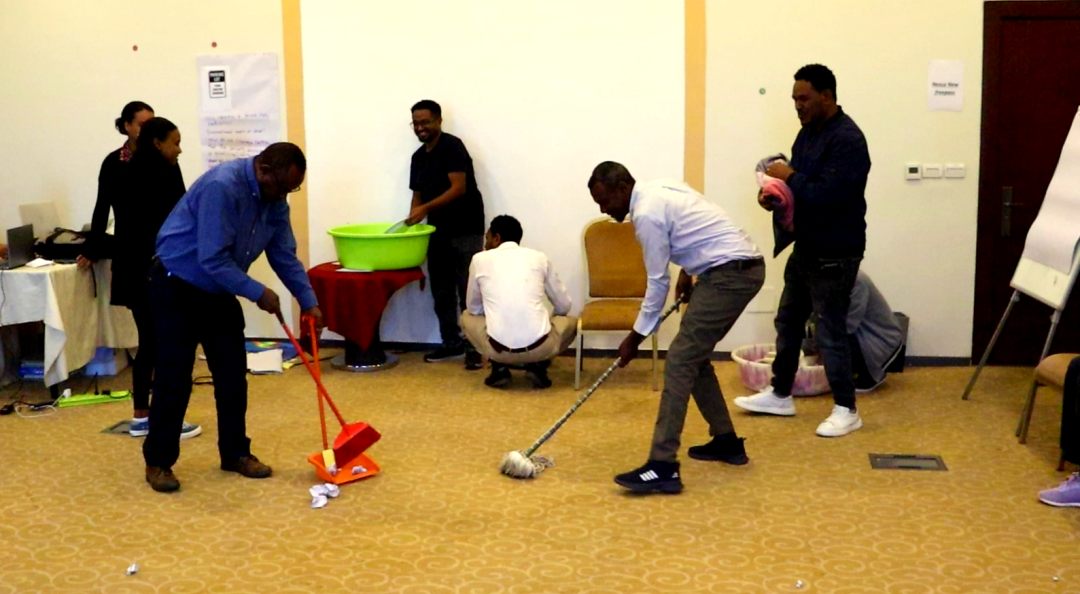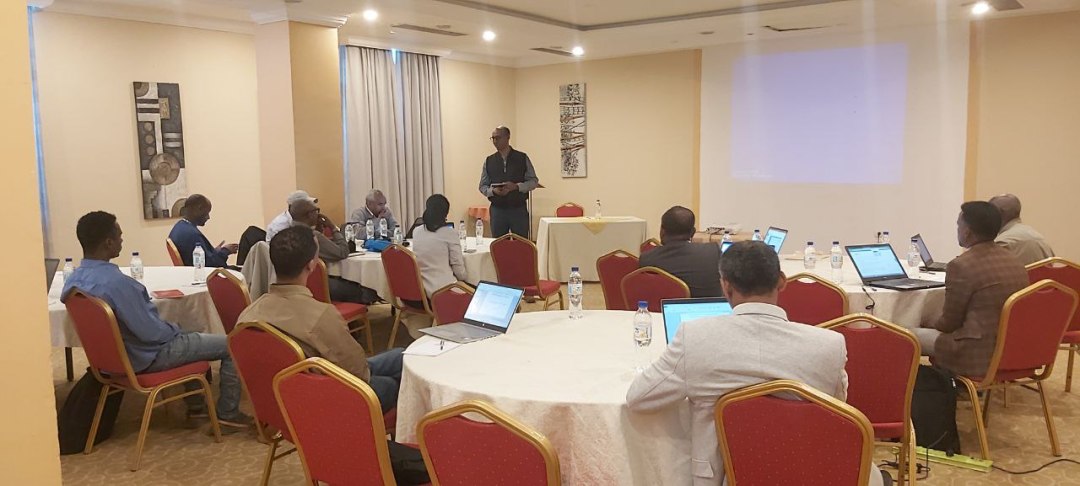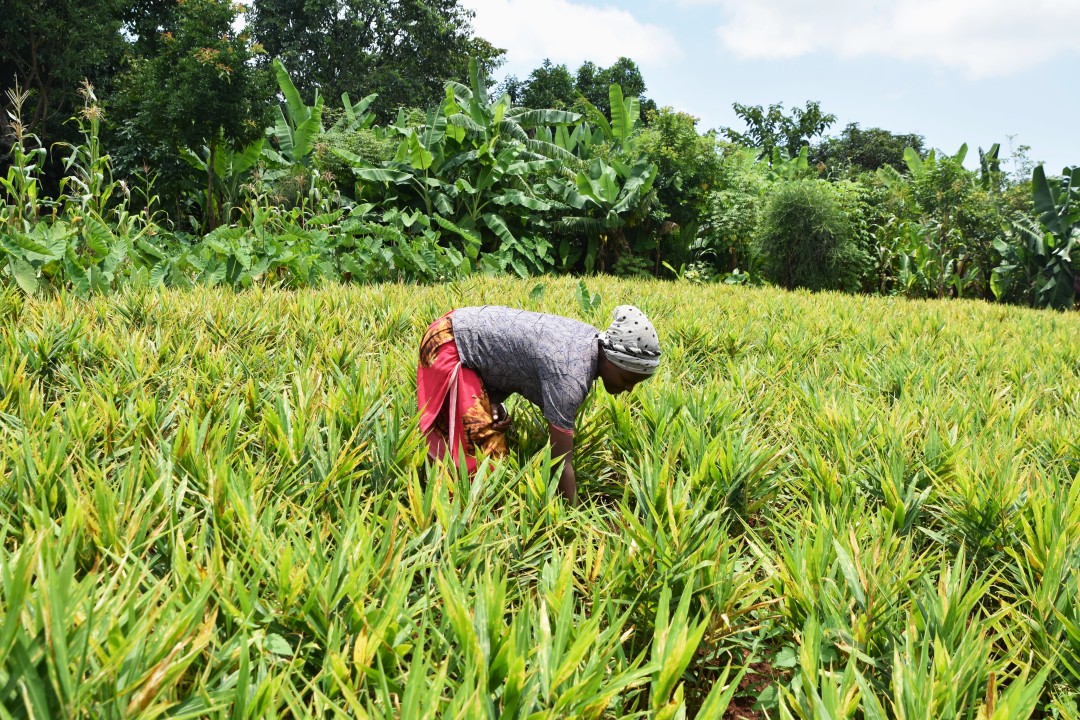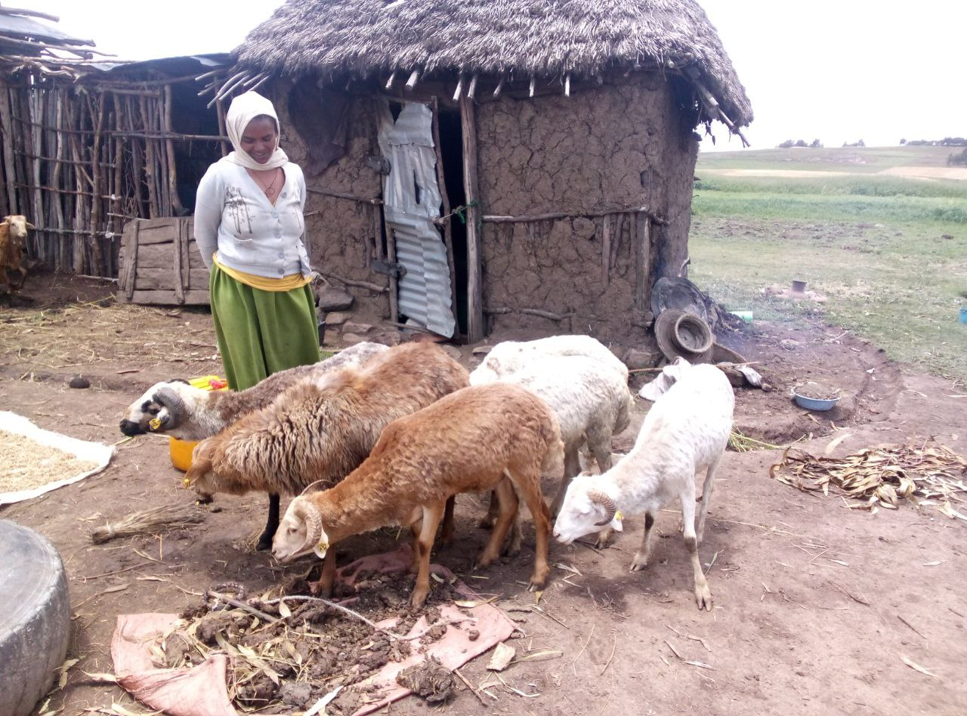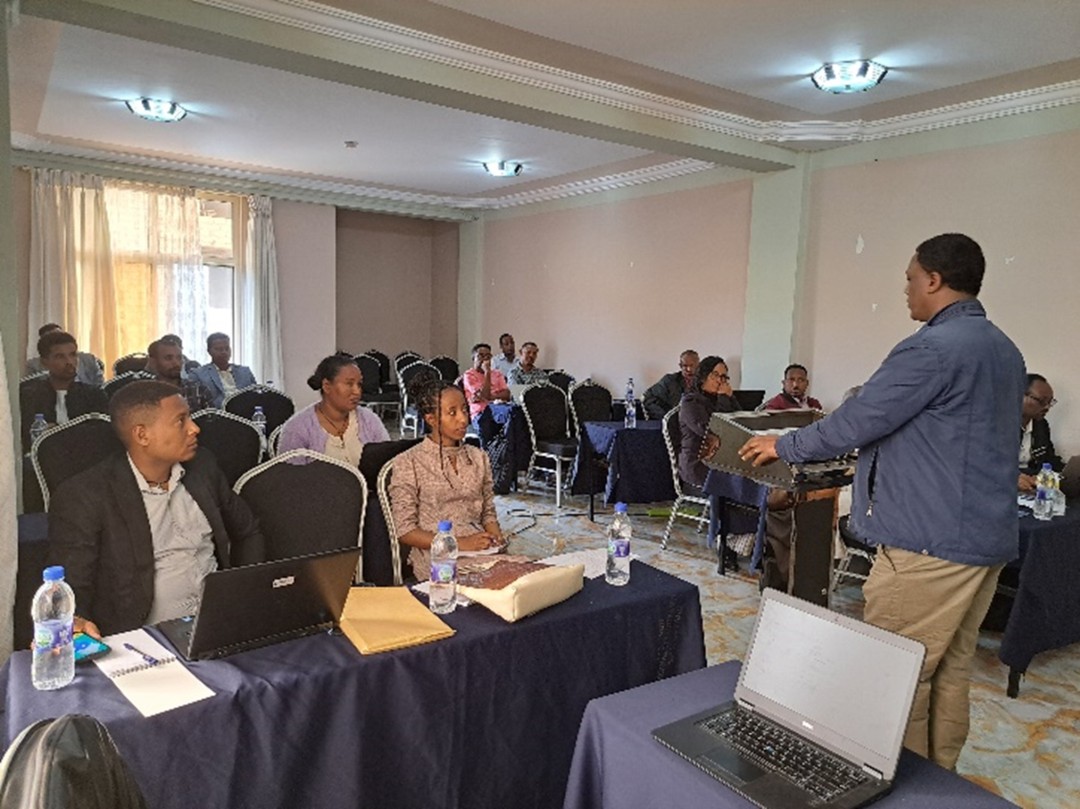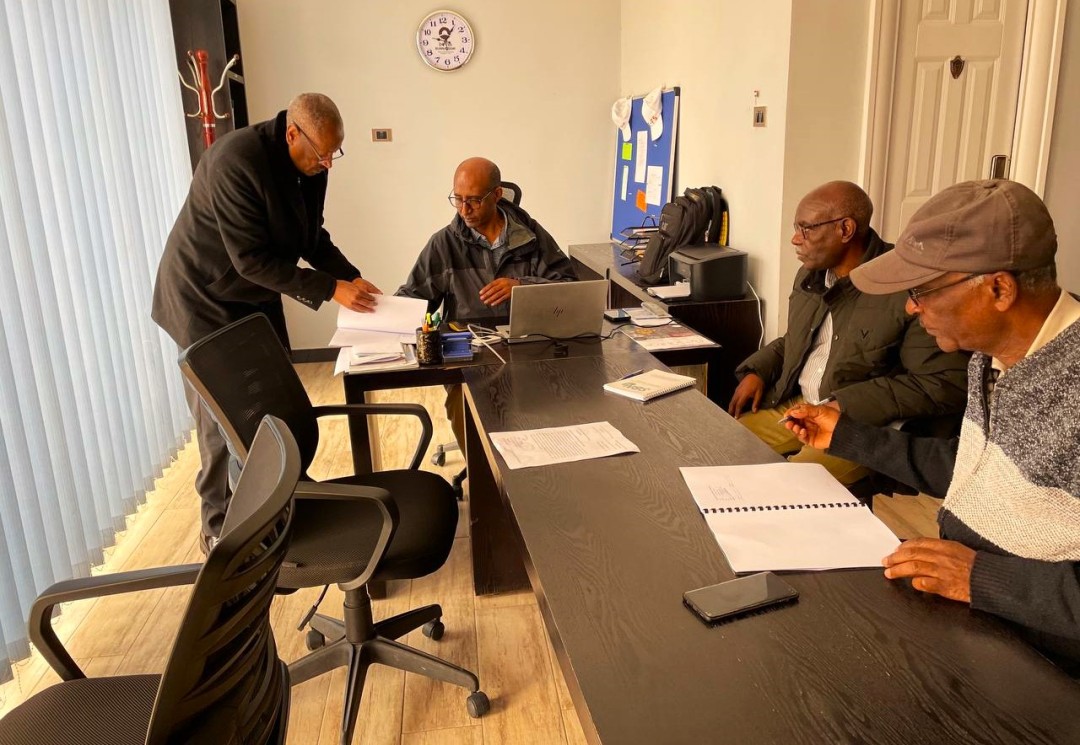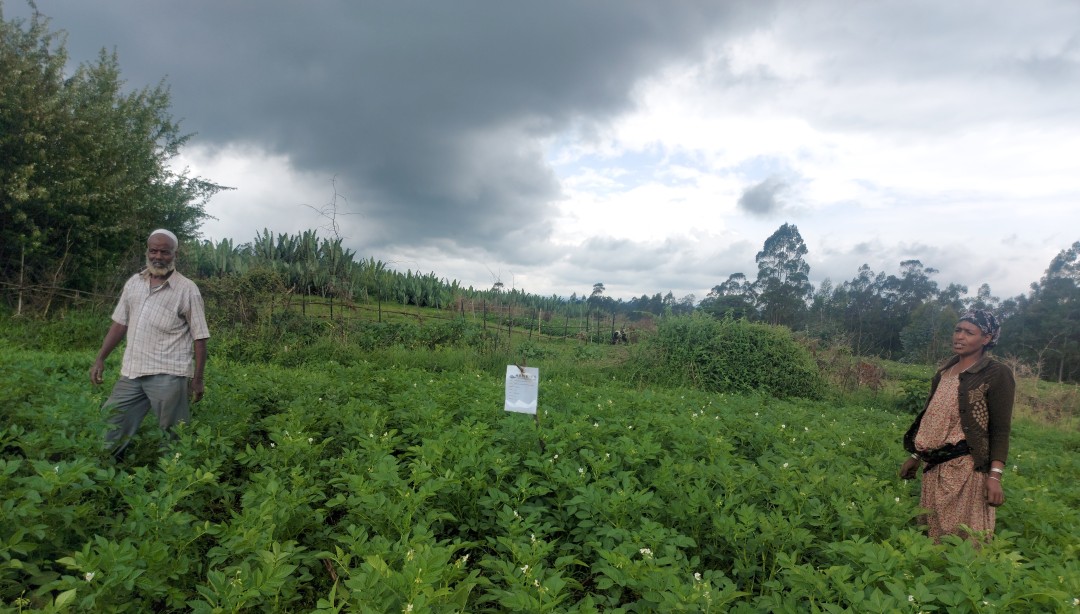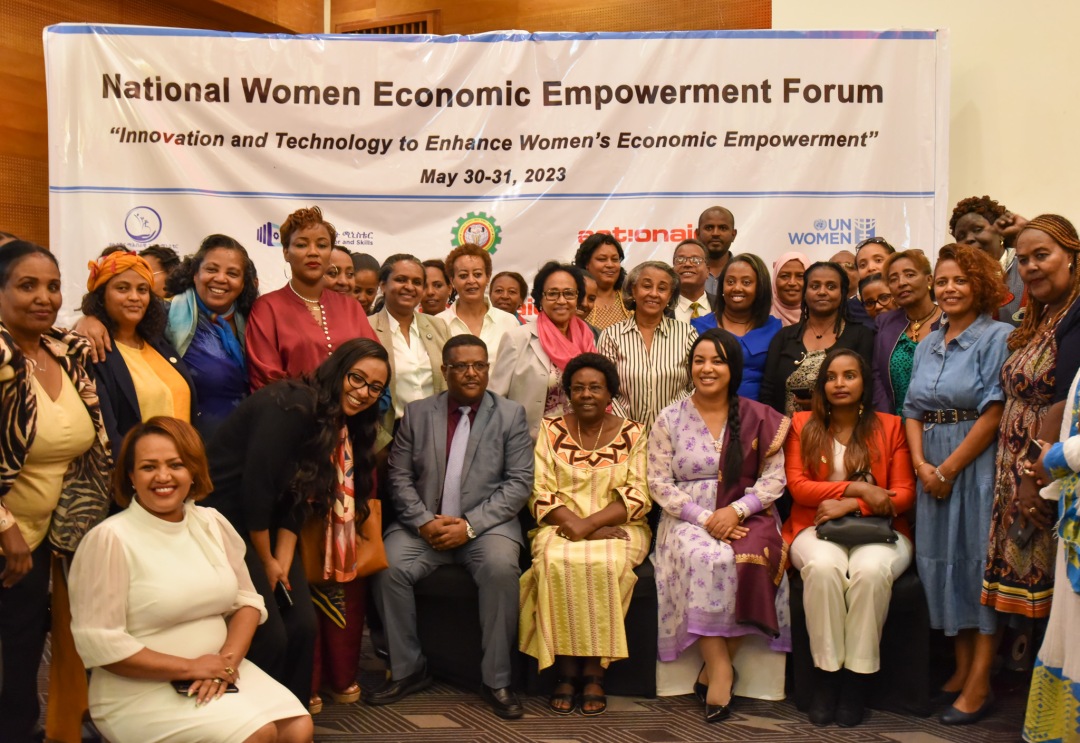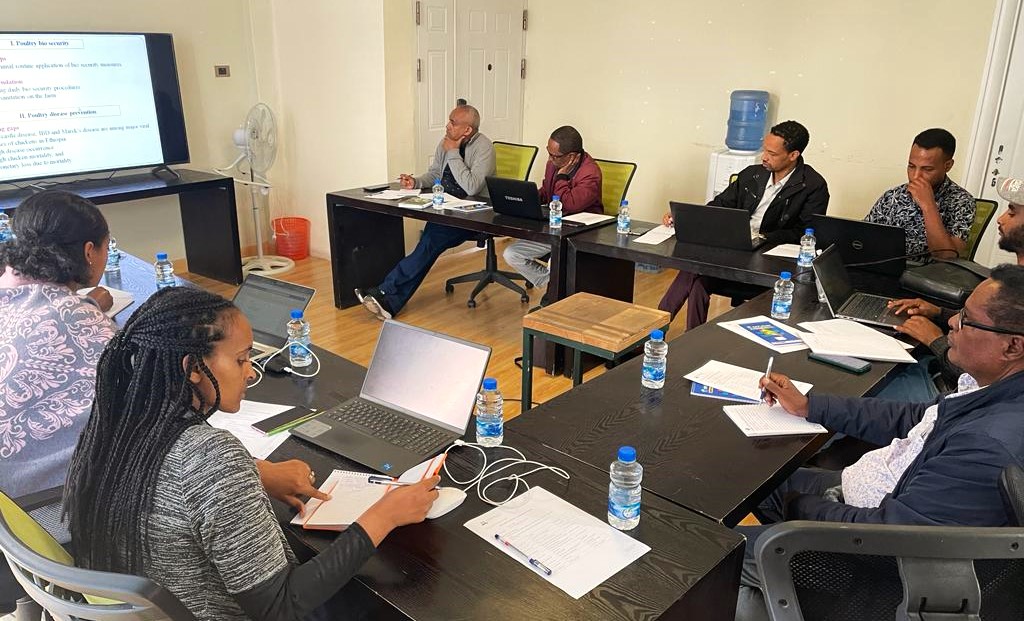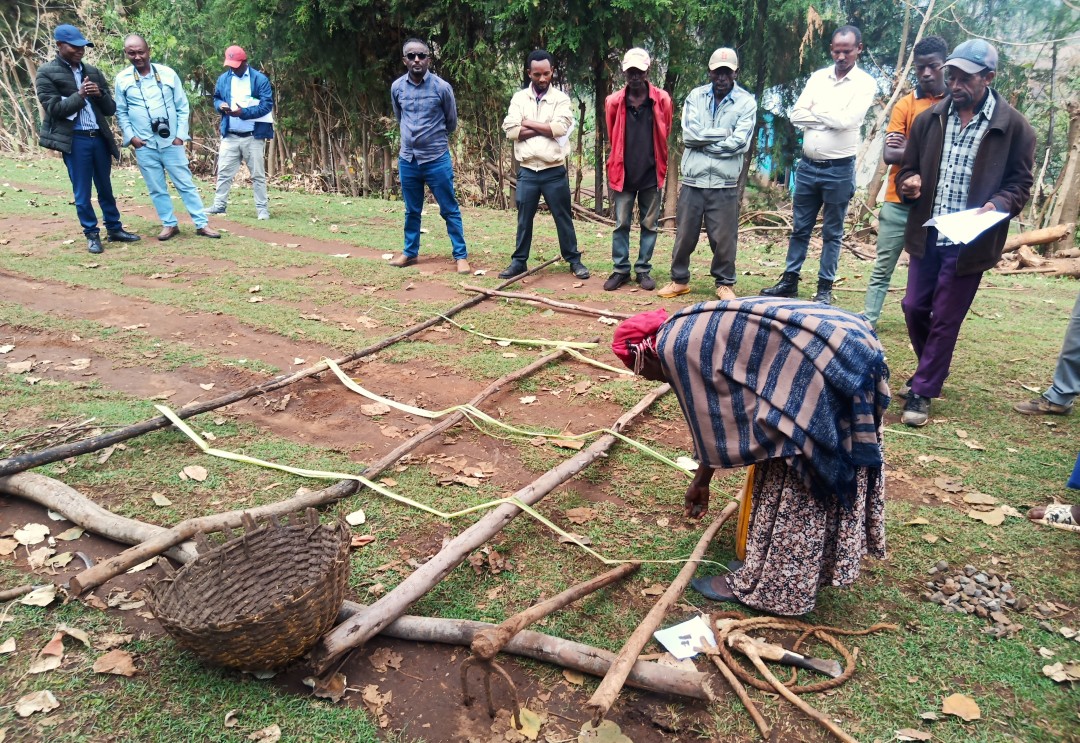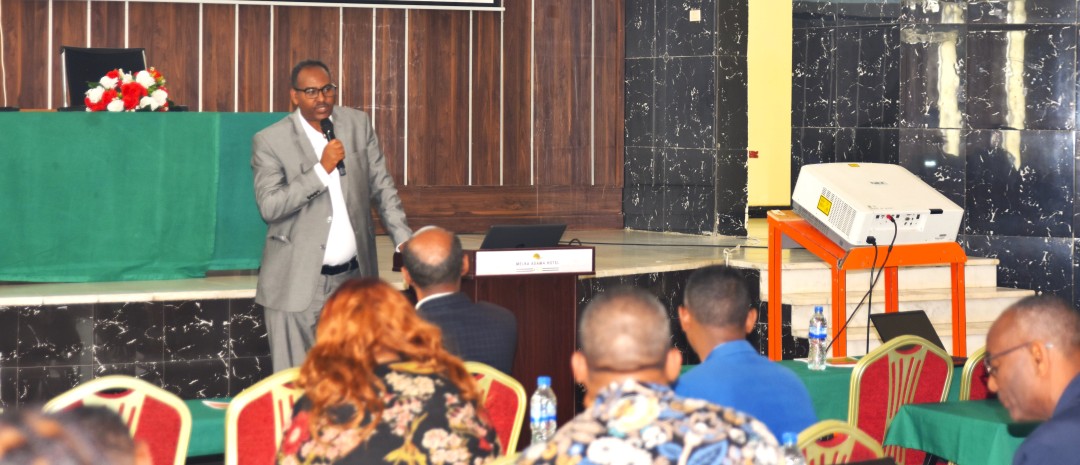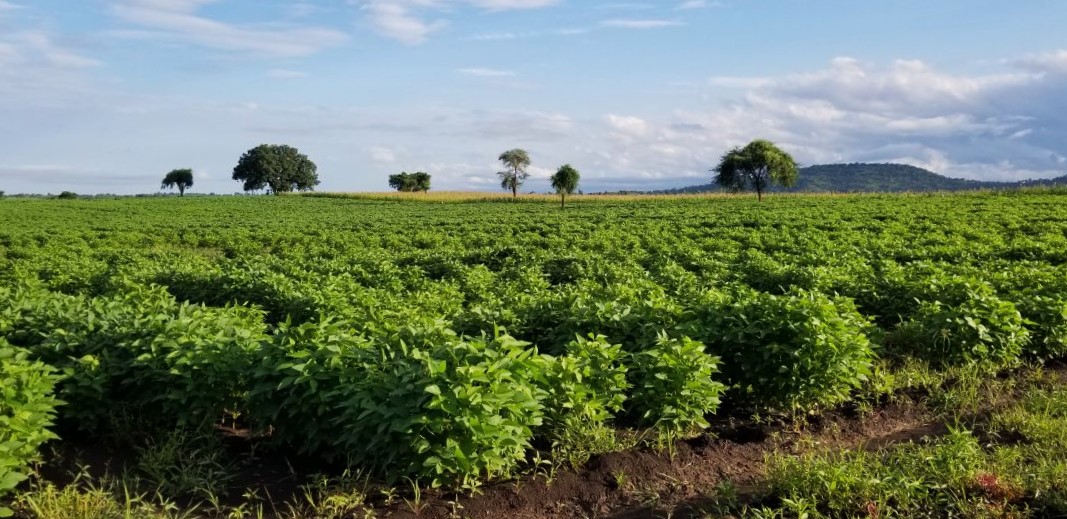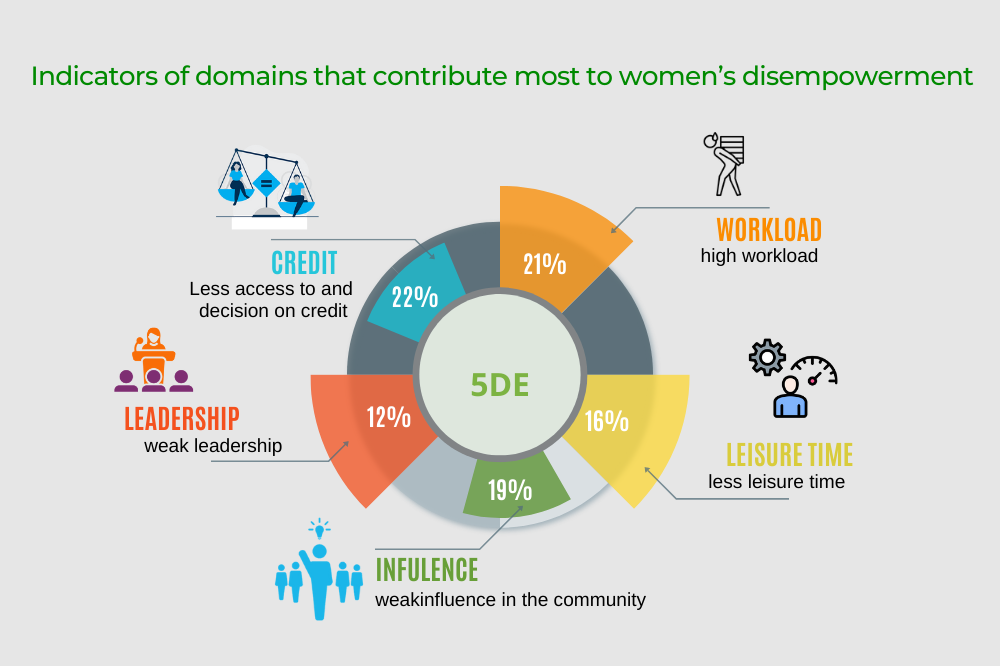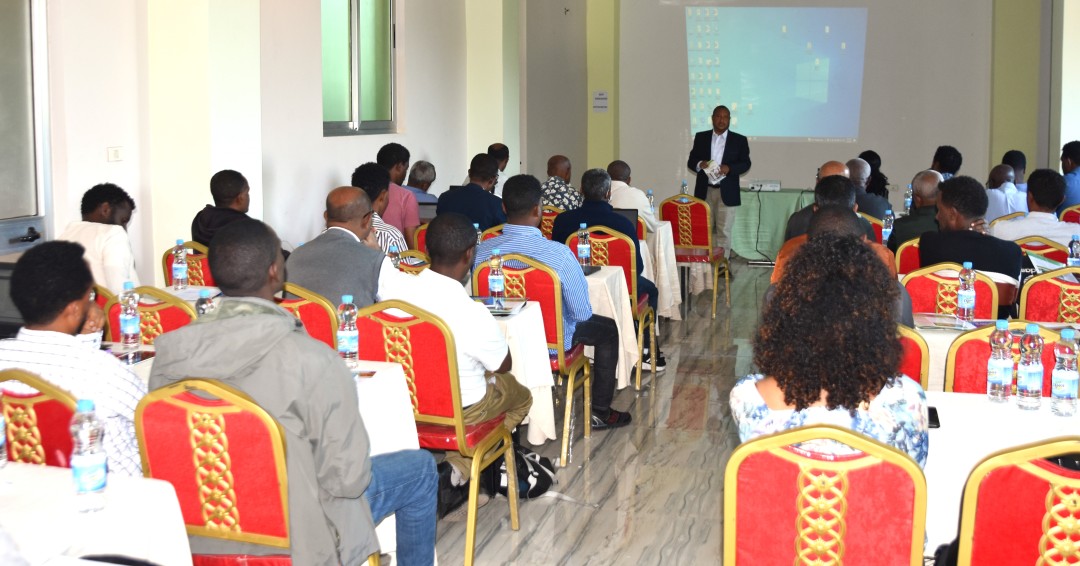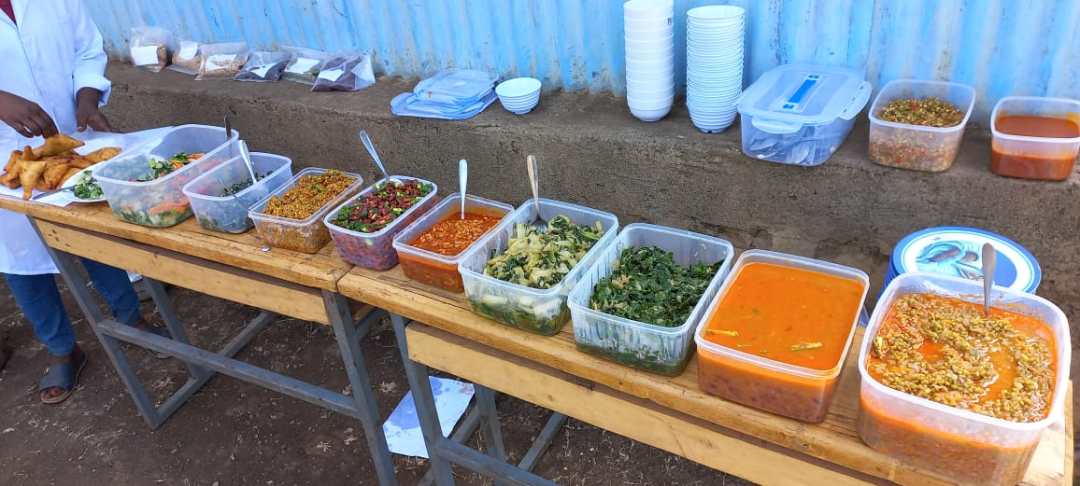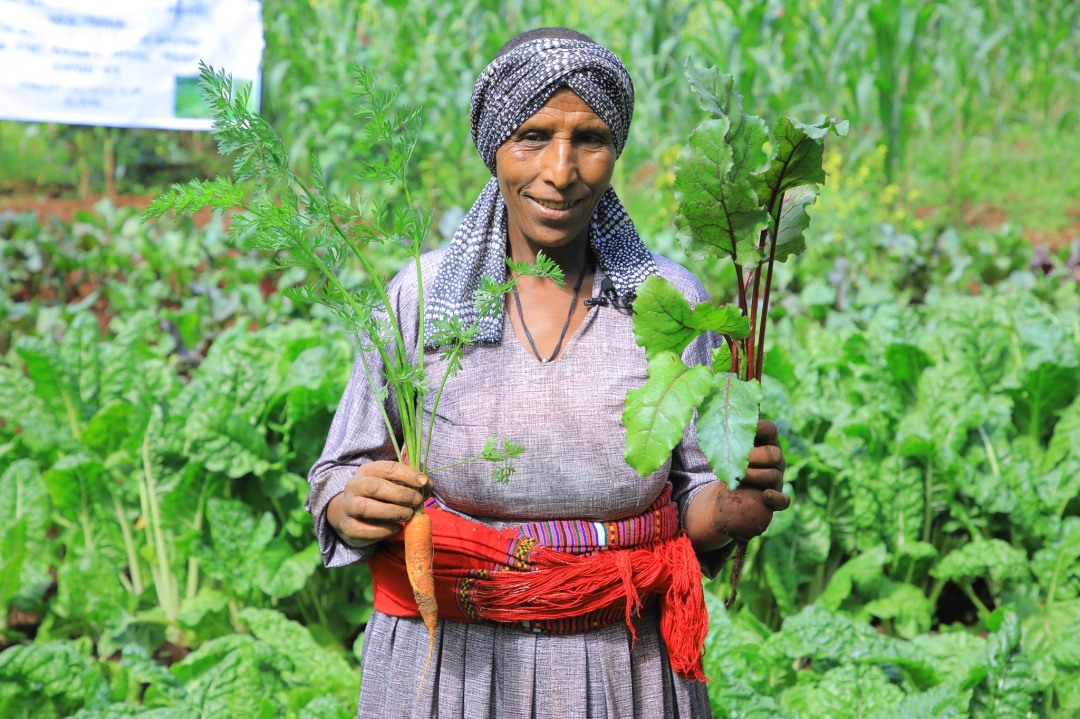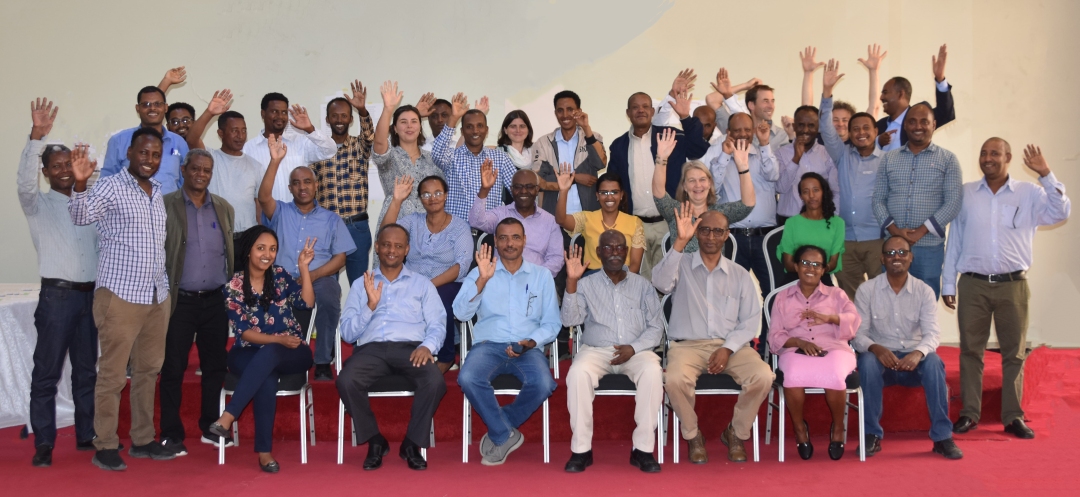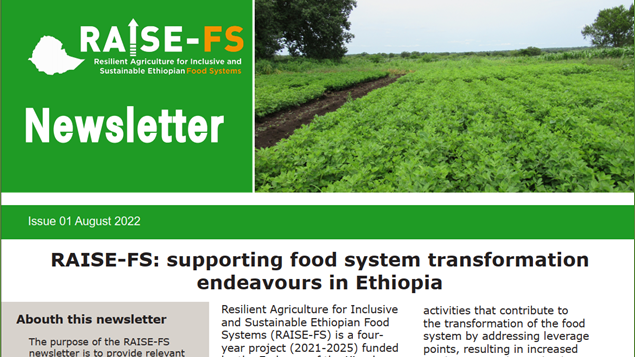Mycotoxin contamination poses a significant and growing challenge to food safety and public health, particularly in the context of export commodities. A recent validation workshop organized by RAISE-FS shed light on the assessment of Mycotoxin prevalence in selected commodities under farmer’s storage conditions in the Amhara region, Ethiopia, revealing concerning findings. The assessment specifically focused … Continue reading Addressing Mycotoxin Contamination in Ethiopian Food System: A Call to Action
Leveraging bottom-up planning and innovation recommendation mapping for evidence-based scaling of innovations
The RAISE-FS project remains steadfast in its commitment to transforming the Ethiopian food system. Through a dedicated focus on employing a demand-driven and interdisciplinary approach, the project aims to catalyse transformation within the food system. This approach is underpinned by the integration of grassroots planning tools, such as the Rapid Food System Appraisal (RFSA) and … Continue reading Leveraging bottom-up planning and innovation recommendation mapping for evidence-based scaling of innovations
Food System Resilience in Tigray: strengthening collaborative engagement
The RAISE-FS Ethiopia project has resumed its activities in Tigray, Ethiopia, signalling a renewed commitment to addressing the challenges facing the region’s food system. Following a baseline survey and Rapid Food System Appraisal (RFSA) conducted in collaboration with TARI and Mekelle University, the project has gained valuable insights into the dynamics of the food system … Continue reading Food System Resilience in Tigray: strengthening collaborative engagement
Empowering local communities to identify and address social issues through participatory approaches
The partners of RAISE-FS in Southern Ethiopia have been provided with crucial knowledge and skills through extensive training in Social Analysis and Action (SAA). The primary objective of this training was to familiarize participants with the fundamental concepts of SAA and enhance their facilitation skills, which they will utilize when cascading the training at the … Continue reading Empowering local communities to identify and address social issues through participatory approaches
Preparation is in progress ahead of the start date for EUDR implementation
As the EU’s new Regulation on Deforestation-Free Products (EUDR) comes closer to implementation, Ethiopian exporters find themselves at a critical juncture. The EUDR, aimed at promoting sustainable and climate-friendly trade practices, presents a significant challenge for Ethiopian products destined for the European market. With a focus on seven key commodities, including coffee and soya beans, … Continue reading Preparation is in progress ahead of the start date for EUDR implementation
Enhancing supply of seed potato through farmer-managed mini-tuber production under screen houses
Potato production plays a vital role in ensuring food security, particularly during the critical period preceding the harvest of grain crops. However, the country faces challenges in achieving optimal potato yields, primarily due to the limited availability of high-quality seed potatoes. In response to this issue, initiatives have been undertaken to promote the production of … Continue reading Enhancing supply of seed potato through farmer-managed mini-tuber production under screen houses
Pearl millet-mung bean intercropping: a climate-smart and risk-aversion technique for Ziquala woreda
Intercropping has long been a common practice among smallholder farmers in areas with minimal and erratic rainfall, such as Ziquala woreda in Ethiopia. With limited livelihood opportunities and nutrition diversification, farmers in this area have been facing challenges related to recurrent drought and infertile soil. In response to these challenges, the Sekota Dry-Land Agricultural Research … Continue reading Pearl millet-mung bean intercropping: a climate-smart and risk-aversion technique for Ziquala woreda
Efforts to transform local food systems through promotion of nutritionally dense crops
The importance of dietary diversity in ensuring food and nutrition security cannot be overstated. In order to address this critical issue, the RAISE-FS project conducted a baseline survey and rapid food system appraisal (RFSA) in the selected kebeles of Boloso Bombe and Gumer woredas. The results of the survey revealed that the primary food sources … Continue reading Efforts to transform local food systems through promotion of nutritionally dense crops
A leap towards gender transformative research for development: it starts with us
In today’s society, promoting gender equality and inclusion is crucial. One effective approach is to provide staff training on gender transformative methods. By equipping staff with the knowledge and skills to address the root causes of gender inequality, a more inclusive and empowering environment can be created for all. As part of the effort to … Continue reading A leap towards gender transformative research for development: it starts with us
Farmers witness promising results of maize andcommon bean innovations in Sire Woreda
Ethiopia faces the challenge of increasing agricultural productivity to support its growing population, especially in regions like Sire woreda where small farmers rely on maize and common bean crops. The area grapples with soil degradation, fertility loss, and limited access to agricultural technologies. In response to these challenges, the RAISE-FS project, in partnership with the … Continue reading Farmers witness promising results of maize andcommon bean innovations in Sire Woreda
Documentation of evidence is key to guide food safety in Ethiopia
National Food Safety Technical Working Group writeshops have commenced in Addis Ababa on November 3, 2023, at the Nexus International Hotel. This collaborative effort aims to develop comprehensive documents on national poultry guidelines as well as Good Agricultural Practices and Good Handling Practices for sesame. Experts from various key national food safety entities, including government … Continue reading Documentation of evidence is key to guide food safety in Ethiopia
Woreda Food System Profiles for bottom-up planning and informed decisions
In the pursuit of a more resilient, inclusive, and sustainable food system in Ethiopia, the Resilient Agriculture for Inclusive and Sustainable Ethiopian Food System (RAISE-FS) project has undertaken the development of nine woreda food system profiles. These profiles serve as comprehensive overviews of the current status, dynamics, and behaviours of the local food systems within … Continue reading Woreda Food System Profiles for bottom-up planning and informed decisions
A glimmer of hope for ginger production in Southern Ethiopia after years of stagnation
After several years of halted production, ginger cultivation has returned to southern Ethiopia, bringing hope to farmers and the local economy. The region has a long history of producing high-quality ginger, but disease pressure and unfavorable weather conditions have hampered production in recent years. However, with the support of research and partners, farmers in the … Continue reading A glimmer of hope for ginger production in Southern Ethiopia after years of stagnation
Farmers in Angot woreda start to reap the benefits of the small-business activities
Though it is a bit an early stage to determine the viability of these small business models and a thorough cost-benefit analysis has not yet been performed, those involved in sheep-fattening activities have already started to reap some promising benefits in a time span of less than three months. The baseline and Rapid Food System … Continue reading Farmers in Angot woreda start to reap the benefits of the small-business activities
Innovation Fund 2nd Call for Proposals
Stichting Wageningen Research (SWR) Ethiopia is an international NGO registered in Ethiopia since March 2021 with the FDRE Agency for Civil Society Organizations. The organization is established with the objectives of promoting a more resilient, inclusive and sustainable food systems in Ethiopia. SWR Ethiopia currently implements four projects; Resilient Agriculture for Inclusive and Sustainable Ethiopian … Continue reading Innovation Fund 2nd Call for Proposals
Intercropping: A promising technique for increased productivity and food security
The tradition of growing sole crops is a common practice in most parts of Ethiopia, where cereal crops dominate. However, in some parts of southern Ethiopia, like Wolaita and Sidama, farmers cultivate multiple crops concurrently with different patterns of mixing. Intercropping is a farming technique where two or more crops are grown together in the … Continue reading Intercropping: A promising technique for increased productivity and food security
Oromia RAISE-FS project review meeting: assessing progress and ensuring success
To assess the progress and status of the planned activities for the 2023 RAISE-FS project, the Oromial Liaison Office organized a bi-annual project review meeting. Held on August 19, 2023, at Adama’s Hillside Hotel, this one-day workshop brought together various stakeholders, including implementing partners, centre representatives, finance persons, MEL experts, and project advisors. The primary … Continue reading Oromia RAISE-FS project review meeting: assessing progress and ensuring success
Funding innovations to promote inclusive poultry value chain development
SWR Ethiopia and KSMA Agro-industry Processing PLC have entered into an agreement to support a project that aims to improve the poultry breed value chain through the use of dual-purpose Koekoek chicken production models in Ada'a woreda, Oromia region. The agreement was signed by Dr Dawit Alemu, Country Representative of SWR Ethiopia, and Colonel Mebratu … Continue reading Funding innovations to promote inclusive poultry value chain development
Backstopping and Technical Guidance for Successful Project Implementation
Effective implementation strategies are essential for the success of any project. Proper planning, monitoring, and evaluation along with collaborating partner institutions are crucial elements that must be considered to ensure that the project successfully meets its intended objectives. However, even with careful planning, unforeseen circumstances can arise, leading to delays and challenges in project implementation. … Continue reading Backstopping and Technical Guidance for Successful Project Implementation
Potato seed value chain: a critical leverage point to transform food systems in Ethiopia
Potato cultivation is a crucial agricultural activity in Ethiopia, particularly in highland and mid-altitude areas during belg and meher seasons. The Southern National, Nationalities and Peoples Regional (SNNPR) state is the largest contributor to the country’s annual production, accounting for 42% of the total area and over 47% of the national production. The major potato … Continue reading Potato seed value chain: a critical leverage point to transform food systems in Ethiopia
The NWEE Forum: A Platform for Promoting Women’s Economic Empowerment through Innovation and Technology
The National Women's Economic Empowerment (NWEE) Forum is an annual event that aims to foster dialogue and collaboration among various stakeholders working to advance women's economic empowerment in Ethiopia. The forum was initiated in 2022 by UN Women Ethiopia, the Ministry of Women and Social Affairs (MOWSA), the Ministry of Labor and Skills, ActionAid Ethiopia … Continue reading The NWEE Forum: A Platform for Promoting Women’s Economic Empowerment through Innovation and Technology
National Food Safety Technical Working Group identified priority food safety concerns
Food safety is a crucial issue that affects the health and well-being of millions of people around the world. To ensure food safety it requires concerted efforts from all relevant stakeholders. To this end, SWR Ethiopia facilitated the establishment of a national Food Safety Technical Working Group (FSTWG). The FSTWG is a collaborative initiative that … Continue reading National Food Safety Technical Working Group identified priority food safety concerns
Ethiopian parliament approves contract farming proclamation
Oil crop producers in northwest Ethiopia have long faced various challenges related to marketing, including poor market linkages, reduced market prices, transport and storage costs, market information gaps, and collusion by brokers or middle-men, apart from significant production issues such as the lack of agricultural inputs, financing and technology. Efforts have been made to address … Continue reading Ethiopian parliament approves contract farming proclamation
Soaring fertilizer costs threatening food and nutrition security in Ethiopia
Global developments are causing a chain of spin-off effects that influence the food chain at an international and local scale. The ongoing conflict between Ukraine and Russia has resulted in price increases for natural gas which is needed to produce ammonia and then nitrogen, key elements of fertilizers, as well as increased fertilizer transportation costs.The … Continue reading Soaring fertilizer costs threatening food and nutrition security in Ethiopia
Gender transformative approaches: going beyond treating the symptoms
Conventional gender mainstreaming approaches’ often solely address the symptoms of gender inequality without looking at the underlying causes and as such has not brought the desired gender goals. Gender transformative approaches on the other hand aim to change existing power dynamics, structures, and social norms that are the root causes of gender-based inequality as a … Continue reading Gender transformative approaches: going beyond treating the symptoms
Customized and inclusive extension package to enhance crop productivity and soil health
The OTIPAVA-project which is one of the projects hosted by SWR Ethiopia, had its annual workshop in Adama on March 27, 2023. Dr. Tewodrose Tefera, OTIPAVA project manager, welcomed everyone to the workshop. Dr. Tewodrose stated in his welcome speech that the workshop is intended to spark a national compost movement, endorsement of the 'one-timad' package … Continue reading Customized and inclusive extension package to enhance crop productivity and soil health
Emerging issues in soya bean marketing: the case of North-western Ethiopia
Linked with the expansion of domestic edible oil industry and associated increased demand, soya bean production in Ethiopia has increased dramatically over the last three years. The Amhara region, in particular, has shown a very significant increase in soya bean production, with the area expanding from 46,892 ha in 2019/2020 to 248,573 ha in 2021/2022. … Continue reading Emerging issues in soya bean marketing: the case of North-western Ethiopia
Emerging issues in soya bean marketing: the case of North-western Ethiopia
Linked with the expansion of domestic edible oil industry and associated increased demand, soya bean production in Ethiopia has increased dramatically over the last three years. The Amhara region, in particular, has shown a very significant increase in soya bean production, with the area expanding from 46,892 ha in 2019/2020 to 248,573 ha in 2021/2022. … Continue reading Emerging issues in soya bean marketing: the case of North-western Ethiopia
Stakeholders workshop on fertilizer supply chain in Ethiopia conducted
Inorganic fertilizer is a crucial component for increasing agricultural output in Ethiopia's food system. However, because it is not produced domestically, there is a significant reliance on import, which makes the country very vulnerable to global price shocks. If these global drivers are not appropriately handled, they could have a detrimental effect on Ethiopia's food … Continue reading Stakeholders workshop on fertilizer supply chain in Ethiopia conducted
Brief highlights from RAISE-FS baseline survey
The RAISE-FS project conducted a baseline survey in its intervention areas in the three regions. The major objective of the survey was to collect information on the outcome areas of the project so as to provide an information base against which to monitor and assess the project progress. Methodology Multistage sampling approach was followed to … Continue reading Brief highlights from RAISE-FS baseline survey
Improving the Innovation Recommendation Mapping: for evidence-based decision support
Efficient agricultural planning and informed decision making are key elements for sustainability and resilience of agricultural production. To support this process Innovation Recommendation Mapping (IRM) was developed by Wageningen University & Research and experts from Ethiopia (mainly from the Ministry of Agriculture and Mekelle University) under the BENEFIT projects. IRM allows users to generate maps … Continue reading Improving the Innovation Recommendation Mapping: for evidence-based decision support
The ‘Monday Knowledge Plate’ Seminar of SWR Ethiopia
The SWR Ethiopia office is hosting a regular seminar session named "Monday Knowledge Plate" starting from end of 2022 to share knowledge and experiences, gather feedbacks, and build evidence. The aim is also to use it as a useful knowledge sharing and integration platform that creates synergy between different outcome areas within and across projects … Continue reading The ‘Monday Knowledge Plate’ Seminar of SWR Ethiopia
Validation workshops for 2023 work plan conducted
RAISE-FS regional teams planned 2023 activities with a close support of national advisors for the five outcome areas and food systems of the project. The teams adapted and improved the plans based on inputs received from the national advisors. The revised work plans were presented in a series of validation workshops to key food system … Continue reading Validation workshops for 2023 work plan conducted
Promoting gender-sensitive approach to improve household nutrition
Gender and nutrition can be considered as two sides of the same coin and are also priory intervention areas of the RAISE-FS project. RAISE-FS project employs a gender-sensitive approach to promote nutrition, which acknowledges the important role that women have in nutrition outcomes, as well as the need to better support them to improve their … Continue reading Promoting gender-sensitive approach to improve household nutrition
Start off workshop on gender and social inclusion held
Regional teams set out to revisit the 2023 plans through the lens of gender and social inclusions after the two-days workshop. SWR Ethiopia-RAISE-FS project organized a Gender and Social Inclusion (GESI) start-off workshop for about 35 individuals convened from the three regional RAISE-FS teams, regional team members from partner universities and research institutions, and their … Continue reading Start off workshop on gender and social inclusion held
Most significant change story of soybean innovation
This short video shows the impact of soybean innovation in changing the sesame dominated farming system in NW Ethiopia. The video was produced by RAISE-FS staff with the support of Eye Opener Works and EKN Addis. https://videopress.com/v/8IOB1d2t?resizeToParent=true&cover=true&preloadContent=metadata&useAverageColor=true MSC story of soybean innovation in Amhara region
Stinging Nettle (Urtica simensis): a potential food crop for highlands with food insecurity
Due to prolonged periods of food scarcity, drought, and starvation, people in some highlands of the Amhara region use some wild green vegetables, the most common of which is stinging nettle, which is known locally as sama. The plant, which is primarily associated with the diet of the underprivileged, has also long been consumed for … Continue reading Stinging Nettle (Urtica simensis): a potential food crop for highlands with food insecurity
Technology testing and validation efforts to revitalize lentil production visited by stakeholder
Lentil provides important economic advantages to the small-scale farm households in providing food, feed, cash income, and at national level, it also provides advantage to earn foreign currency, import substitution and job creation through value addition and processing. In spite of its importance, lentil productivity had remained very low mainly due to the use of … Continue reading Technology testing and validation efforts to revitalize lentil production visited by stakeholder
Baseline survey and Rapid Food System Appraisal findings validated
Resilient Agriculture for Inclusive and Sustainable Ethiopian Food System (RAISE FS) project is being implemented in partnership with different stakeholders. One of the regions where the project operate is Oromia region. In Oromia region the project collaborates with different stakeholders which includes implementing partners namely Ethiopian Institute of Agricultural Research (EIAR) and Haramaya university and … Continue reading Baseline survey and Rapid Food System Appraisal findings validated
Women farmers benefited economically from vegetable production
Women farmers in Kililit and Adet Zuria kebeles of the Yilman Densa woreda benefit from the sale of the vegetables they grow in their backyard gardens in addition to using them for domestic consumptions. On the 4th of October 2022, Adet Agricultural Research Center (AARC) in partnership with Resilient Agriculture for Inclusive and Sustainable Ethiopian- … Continue reading Women farmers benefited economically from vegetable production
Farmers and stakeholders pay a visit to field-level innovation testing and validation activities
More than 60 individuals- farmers and stakeholders in the agricultural sector convened from woreda to national levels paid a field visit to RAISE-FS supported activities carried out in 10 farmers’ fields and in the sub-research stations of Gondar Agricultural Research Center on the 1st of October 2022 at Mirab Armachiho woreda. Participants of the field … Continue reading Farmers and stakeholders pay a visit to field-level innovation testing and validation activities
A planning workshop for 2023 and beyond held
From 20 to 22nd of September 2022, RAISE-FS held a planning workshop for 2023 fiscal year and beyond at Adama town. The aim of this workshop, which gathered around 35 experts from research institutes and universities, was to identify and priorities concrete action points for innovation testing and validation related to transforming food systems in … Continue reading A planning workshop for 2023 and beyond held
RAISE-FS Newsletter August 2022 issue published
The RAISE-FS newsletter's goal is to provide relevant information on latest developments and current problems issues in the Ethiopian food system as well as project support activities. The first issue outlines the major activities that took place between January and July 2022. A scoping study conducted by RAISE-FS to map gender and youth focused initiatives in the agriculture … Continue reading RAISE-FS Newsletter August 2022 issue published
Interaction, networking and feedback are very important to ensure food systems transformation
Ethiopian Institute of Agricultural Research (EIAR) in partnership with Stichting Wageningen Research (SWR) conducted the validation workshop for the RAISE-FS regional plan on July 02, 2022, at Bellevue Hotel in Addis Ababa. Dr. Diriba Geleti, Deputy Director General for Research, EIAR, said in his opening speech that Interaction, networking and feedback are very important for … Continue reading Interaction, networking and feedback are very important to ensure food systems transformation
Identifying Leverage Points to Foster Food System Transformation in Ethiopia
The underlying problem framing or conceptualization guides interventions to promote food system transformation. This framing, on the other hand, pays little attention to other, sometimes underlying causes of food system challenges, such as institutional interplay or power imbalances. In practice, however, determining how to intervene in a specific food system to most effectively promote food … Continue reading Identifying Leverage Points to Foster Food System Transformation in Ethiopia
Institutional Innovation Key to Food System Transformation
Food system transformation requires innovation across and within food systems, as well as strong teamwork, partnerships, and building on previous experiences. Facilitating multi-stakeholder platforms at all levels is critical for food system transformation. RAISE-FS acknowledges and use as an implementation approach institutional innovations that improve and develop new models of collaboration and partnerships to ensure … Continue reading Institutional Innovation Key to Food System Transformation
SWR Ethiopia inks collaboration agreement with regional implementing partners
Stichting Wageningen Research (SWR) Ethiopia inked collaboration agreements with regional Agricultural Research Institutes and Universities for its project Resilient Agriculture for Inclusive and Sustainable Ethiopian Food System (RAISE-FS) on the 29th of April 2022 at Bellevue Hotel in Addis Ababa. The signing ceremony took place between SWR-RAISE-FS and three regional universities- Bahir Dar, Hawassa, and … Continue reading SWR Ethiopia inks collaboration agreement with regional implementing partners
Agricultural sector transformation is teamwork: A book about the experiences of the Sesame Business Network (SBN) programme in Northwest Ethiopia
BENEFIT-SBN programme recently published a book about the programme experiences in the sesame sector in Northwest Ethiopia. The book looks at the many challenges and opportunities for transforming the sector, to the benefit of farmers and stakeholders involved.
Rapid Food System Appraisal in RAISE-FS
Wageningen University & Research (WUR) in collaboration with partner organizations in Ethiopia published a report “Rapid country assessment: The impact of COVID-19 on the food system in Ethiopia” on key impacts of COVID-19 crisis on Ethiopia food system.
The effect of COVID 19 on sesame belt agricultural labourers from Amhara and Tigray
BENEFIT-REALISE brief “The effect of COVID19 on agricultural casual labourers: a case of sesame belt migrants from Amhara and Tigray” highlights the findings of a rapid assessment designed to evaluate the early effects of COVID19 on PSNP households wage income in sesame growing areas of Tigray and Amhara regions.

